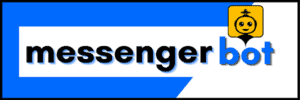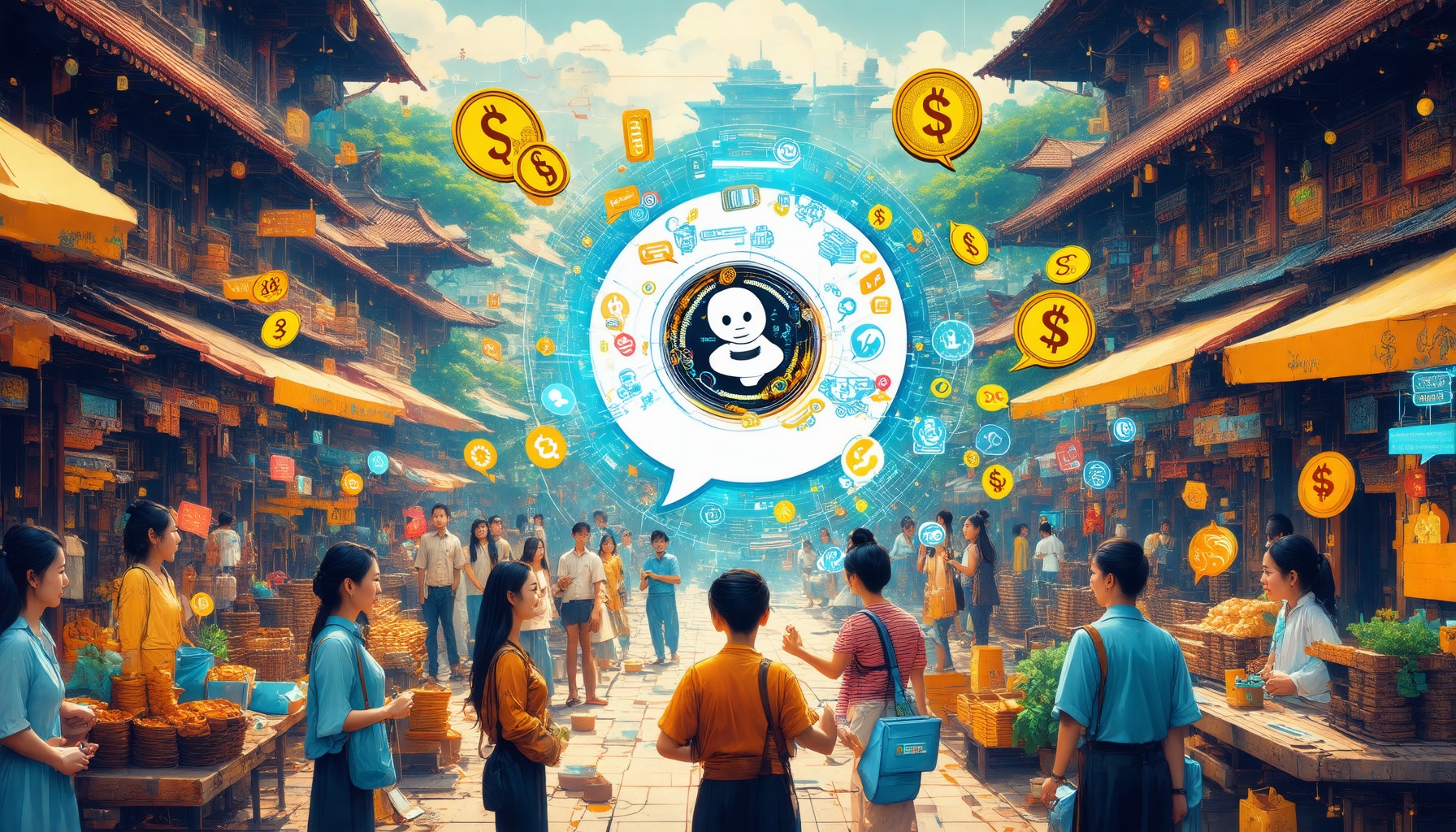Key Takeaways
- High Profit Potential: Chatbot businesses can generate significant income, with potential earnings exceeding $10,000 per month.
- Growing Market Demand: The global chatbot market is projected to reach $1.34 billion by 2024, showcasing robust growth across industries.
- Diverse Applications: Chatbots serve multiple purposes, including customer support, sales, and lead generation, enhancing business efficiency.
- Cost Savings: Businesses can save over $8 billion annually by implementing chatbots, reducing the need for extensive customer service staff.
- 24/7 Availability: Chatbots provide round-the-clock service, improving customer engagement and satisfaction.
- Scalability: Chatbot solutions can easily scale with business growth, managing increased interactions without proportional staffing increases.
- Innovative Revenue Streams: Options like subscription services, custom development, and affiliate marketing can enhance profitability.
In today’s rapidly evolving digital landscape, the demand for innovative chatbot business ideas is at an all-time high. As businesses increasingly turn to artificial intelligence to enhance customer engagement and streamline operations, the potential for profitability in the chatbot sector is immense. This article will delve into the lucrative world of chatbot ventures, exploring essential questions such as, “Is a chatbot business profitable?” and “How can you start your own chatbot business?” We will guide you through the steps to launch your chatbot enterprise, identify lucrative niches, and uncover effective monetization strategies. Additionally, we will analyze the market demand for chatbots in 2023, highlight innovative free chatbot business concepts, and provide insights into leveraging platforms like ChatGPT for unique business opportunities. Whether you’re a seasoned entrepreneur or a student looking to explore chatbot projects, this comprehensive guide will equip you with the knowledge and strategies needed to thrive in this high-demand market.
Understanding the Profitability of Chatbot Ventures
Yes, chatbot businesses can be highly profitable, with the potential to earn $10,000 a month or more. Here are several key points to consider:
- Market Demand: The global chatbot market is projected to reach $1.34 billion by 2024, growing at a CAGR of 24.3% (Business Insider, 2021). This growth indicates a strong demand for chatbot solutions across various industries, including e-commerce, healthcare, and customer service.
- Diverse Applications: Chatbots can be tailored for numerous applications:
- Customer Support: Automating responses to frequently asked questions can significantly reduce operational costs and improve customer satisfaction.
- Sales and Marketing: Chatbots can engage users, recommend products, and facilitate transactions, enhancing the sales process.
- Lead Generation: By qualifying leads through conversational interactions, chatbots can streamline the sales funnel.
- Cost Efficiency: Implementing chatbots can lower costs associated with customer service personnel. According to a report by Juniper Research, chatbots are expected to save businesses over $8 billion annually by 2022 through reduced customer service costs.
- 24/7 Availability: Unlike human agents, chatbots can operate around the clock, providing immediate assistance to customers regardless of time zones, which can lead to increased sales and customer loyalty.
- Integration with Platforms: Chatbots can be integrated with popular messaging platforms, such as Facebook Messenger, allowing businesses to reach customers where they already spend their time. This integration can enhance user engagement and drive sales.
- Scalability: As businesses grow, chatbots can easily scale to handle increased customer interactions without the need for proportional increases in staffing.
- Data Collection and Insights: Chatbots can gather valuable data on customer preferences and behaviors, enabling businesses to refine their marketing strategies and improve service offerings.
In conclusion, the profitability of a chatbot business hinges on understanding market needs, leveraging technology effectively, and providing tailored solutions that enhance customer engagement. For more detailed insights, consider exploring resources from industry leaders like Gartner and Forrester, which provide extensive research on chatbot trends and best practices.
Exploring Revenue Streams in Chatbot Businesses
Chatbot businesses can tap into various revenue streams, making them versatile and lucrative ventures. Here are some key avenues for generating income:
- Subscription Services: Many chatbot platforms operate on a subscription model, charging businesses a monthly fee for access to their services. This model provides a steady revenue stream and allows for scalability as businesses grow.
- Custom Development: Offering custom chatbot development services can attract clients looking for tailored solutions. This can include designing chatbots for specific industries or unique business needs.
- Affiliate Marketing: By integrating affiliate marketing into chatbots, businesses can earn commissions on products sold through chatbot interactions, enhancing their revenue potential.
- Lead Generation Fees: Charging businesses for qualified leads generated through chatbot interactions can be another profitable avenue, especially in competitive markets.
By diversifying revenue streams, chatbot businesses can enhance their profitability and ensure long-term sustainability.
Case Studies of Successful Chatbot Entrepreneurs
Examining successful chatbot entrepreneurs provides valuable insights into effective strategies and innovative approaches. Here are a few notable examples:
- Sephora: The beauty retailer utilizes a chatbot on Facebook Messenger to provide personalized product recommendations and beauty tips, significantly enhancing customer engagement and driving sales.
- H&M: The fashion retailer’s chatbot helps customers find outfits based on their preferences, streamlining the shopping experience and increasing conversion rates.
- Duolingo: This language-learning platform employs chatbots to engage users in conversational practice, making learning more interactive and enjoyable.
These case studies illustrate how effective chatbot implementation can lead to increased customer satisfaction and revenue growth. By learning from these examples, aspiring chatbot entrepreneurs can develop strategies that resonate with their target audience.

How to Start a Chatbot Business?
Starting a chatbot business involves several key steps that require careful planning and execution. Here’s a comprehensive guide to help you launch successfully:
- Identify Your Niche: Determine the specific industry or market you want to target. Research existing chatbot solutions and identify gaps in the market. Popular niches include customer service, e-commerce, healthcare, and education.
- Define Your Value Proposition: Clearly articulate what makes your chatbot unique. This could be advanced AI capabilities, integration with popular platforms, or specialized knowledge in a particular field.
- Choose the Right Technology: Select a chatbot development platform that aligns with your technical skills and business needs. Options include:
- No-code platforms like Chatfuel or ManyChat for quick deployment.
- Custom development using frameworks like Rasa or Microsoft Bot Framework for more complex solutions.
- Design Conversational Flows: Create engaging and intuitive conversation paths. Use tools like flowcharts to visualize interactions. Focus on user experience by ensuring the bot can handle various queries effectively.
- Integrate with Messaging Platforms: Consider deploying your chatbot on popular messaging platforms such as Facebook Messenger, WhatsApp, or Slack. This increases accessibility and user engagement.
- Test and Iterate: Conduct thorough testing to identify bugs and improve user interactions. Gather feedback from early users to refine the chatbot’s performance and capabilities.
- Launch and Market Your Chatbot: Develop a marketing strategy to promote your chatbot. Utilize social media, content marketing, and SEO techniques to reach your target audience. Highlight the benefits and unique features of your chatbot.
- Monitor Performance and Optimize: Use analytics tools to track user interactions and satisfaction. Regularly update your chatbot based on user feedback and emerging trends in AI and machine learning.
- Stay Compliant: Ensure your chatbot adheres to data protection regulations such as GDPR or CCPA. Transparency in data usage builds trust with users.
- Explore Monetization Options: Consider various revenue models such as subscription services, pay-per-use, or offering premium features.
By following these steps, you can establish a successful chatbot business that meets the needs of your target audience while leveraging the latest technology trends. For further insights, refer to resources like Chatbot tutorials and industry reports from Brain Pod AI, which provide valuable data on chatbot effectiveness and market trends.
Identifying Your Niche in the Chatbot Market
Identifying your niche is crucial for the success of your chatbot business. Focus on specific industries where chatbots can solve unique problems or enhance customer experiences. For instance, in the e-commerce sector, chatbots can assist with product recommendations and order tracking, while in healthcare, they can provide appointment scheduling and patient support. Research platforms like Brain Pod AI for insights on how AI chat assistants are being utilized across various sectors.
Essential Tools and Platforms for Chatbot Development
Choosing the right tools and platforms is vital for developing an effective chatbot. Consider using no-code platforms like Messenger Bot for quick deployment, or explore custom development options if you have specific requirements. Additionally, integrating with platforms like Brain Pod AI can enhance your chatbot’s capabilities, offering features like multilingual support and advanced analytics. These tools can significantly streamline your development process and improve user engagement.
Monetization Strategies for AI Chatbots
Understanding how to monetize AI chatbots is crucial for anyone looking to enter the chatbot business. With the right strategies, you can turn your chatbot into a profitable venture. Here are some effective monetization strategies that can help you maximize your earnings:
Subscription Models vs. One-Time Payments
One of the most common ways to monetize AI chatbots is through subscription models. This approach allows businesses to charge clients a recurring fee for ongoing access to chatbot services. Subscription plans can include features such as regular updates, maintenance, and customer support. This model ensures a steady income stream while providing continuous value to clients.
On the other hand, one-time payment models involve charging a single fee for the development and deployment of a chatbot. This can be appealing for businesses that prefer to make a one-off investment rather than commit to ongoing payments. However, it may limit your long-term revenue potential compared to subscription models.
Ultimately, the choice between subscription and one-time payments depends on your target market and the specific needs of your clients. Many successful chatbot businesses find a hybrid approach works best, offering both options to cater to different customer preferences.
Leveraging Affiliate Marketing with Chatbots
Another lucrative strategy for monetizing AI chatbots is through affiliate marketing. By integrating affiliate links into your chatbot conversations, you can promote products and services relevant to your audience. When users make purchases through these links, you earn a commission.
This strategy not only generates revenue but also enhances the user experience by providing personalized recommendations. For instance, if your chatbot assists users in finding products, including affiliate links can turn those interactions into profitable transactions.
To effectively leverage affiliate marketing, choose products that align with your chatbot’s niche and audience interests. This targeted approach increases the likelihood of conversions and maximizes your earnings potential.
Pricing Models for AI Chatbots
Understanding the pricing models for AI chatbots is crucial for businesses looking to invest in this technology. The cost of AI chatbots typically ranges from $75,000 to $150,000. This price variation is influenced by several factors, including the complexity of the natural language processing (NLP) capabilities, the level of customization required, and the integration with existing systems.
Factors Influencing Chatbot Pricing
- Complexity of NLP: Advanced NLP features, such as sentiment analysis and contextual understanding, can significantly increase costs. Chatbots that utilize machine learning algorithms to improve over time may also command higher prices.
- Customization and Features: The more tailored the chatbot is to specific business needs—such as multi-language support, voice recognition, or integration with customer relationship management (CRM) systems—the higher the cost.
- Integration Requirements: Seamless integration with platforms like websites, mobile apps, and social media channels can add to the overall expense. For instance, integrating a chatbot with a Messenger Bot for Facebook can enhance customer engagement but may require additional investment.
- Ongoing Maintenance and Support: Beyond initial development costs, businesses should consider ongoing expenses for maintenance, updates, and customer support, which can range from 15% to 20% of the initial investment annually.
For a comprehensive understanding of pricing structures, refer to industry reports such as “2025 Price Ranges by Chatbot Type” published by Gartner, which provides detailed insights into the costs associated with various chatbot technologies.
Comparing Costs of Custom vs. Off-the-Shelf Chatbots
When considering chatbot solutions, businesses often face the choice between custom-built chatbots and off-the-shelf options. Custom chatbots, while tailored to specific needs, can be significantly more expensive due to the development time and resources required. In contrast, off-the-shelf chatbots offer a more budget-friendly solution, with prices typically ranging from $5,000 to $30,000, depending on the features included.
However, off-the-shelf solutions may lack the flexibility and specific functionalities that a business might require. Therefore, it’s essential to evaluate the long-term benefits and potential ROI of each option. For more insights on chatbot features, explore our chatbot features.

Free Chatbot Business Concepts
Exploring innovative chatbot business ideas can open doors to numerous opportunities, especially for those looking to enter the tech space without significant investment. By leveraging open-source platforms and creative concepts, aspiring entrepreneurs can develop engaging chatbots that cater to various needs.
Utilizing Open-Source Platforms for Chatbot Development
Open-source platforms provide a cost-effective way to create chatbots, allowing developers to customize features without the burden of hefty licensing fees. Tools like Brain Pod AI offer robust frameworks for building chatbots that can be tailored to specific industries or user needs. By utilizing these platforms, you can:
- Access a community of developers for support and collaboration.
- Modify existing templates to suit your business model.
- Experiment with different functionalities to enhance user engagement.
These advantages make open-source platforms an attractive option for anyone looking to dive into the chatbot business without extensive resources.
Creative Chatbot Ideas for Beginners
For beginners, starting with simple yet effective chatbot ideas can lead to successful ventures. Here are a few concepts to consider:
- Personalized Shopping Assistant: Create a chatbot that helps users find products based on their preferences and past purchases.
- Health and Wellness Coach: Develop a chatbot that provides users with fitness tips, meal plans, and motivational support.
- Event Planner: Design a chatbot that assists users in organizing events by suggesting venues, catering options, and sending invitations.
- Language Learning Buddy: Build a chatbot that helps users practice a new language through interactive conversations and quizzes.
These chatbot business ideas not only cater to specific user needs but also allow for scalability as you gain experience and insights into the market. By starting with these concepts, you can establish a strong foundation for your chatbot business.
Innovative Free Chatbot Business Concepts
Exploring chatbot business ideas can lead to exciting opportunities, especially when leveraging free resources and platforms. Here are some innovative concepts that can help you kickstart your journey in the chatbot industry.
Utilizing Open-Source Platforms for Chatbot Development
Open-source platforms provide a cost-effective way to develop chatbots without the need for extensive financial investment. By using tools like Rasa or Botpress, you can create customized chatbots tailored to specific business needs. These platforms offer flexibility and community support, allowing you to innovate without the constraints of proprietary software. Additionally, you can find valuable resources and discussions on Chatbot business ideas Reddit to gather insights and inspiration from fellow developers.
Creative Chatbot Ideas for Beginners
For those just starting, consider developing chatbots that serve niche markets. Here are a few ideas:
- Personal Finance Chatbot: Help users manage their budgets and expenses by providing tailored financial advice and reminders.
- Health and Wellness Chatbot: Offer personalized fitness plans or mental health support through guided conversations.
- Event Planning Chatbot: Assist users in organizing events by providing checklists, reminders, and vendor recommendations.
These concepts not only tap into growing market demands but also allow you to utilize platforms like Messenger Bot to streamline development and deployment.
Free Chatbot Business Ideas
Exploring innovative chatbot business ideas can open up numerous opportunities for entrepreneurs looking to leverage technology in creative ways. With the rise of AI and automation, there are various avenues to explore that require minimal investment and can yield significant returns. Below are some unique concepts that can inspire your chatbot venture.
Utilizing Open-Source Platforms for Chatbot Development
One of the most cost-effective ways to start a chatbot business is by utilizing open-source platforms. These platforms allow you to build and customize chatbots without the hefty price tag associated with proprietary software. By leveraging tools like Brain Pod AI, you can create versatile chatbots that cater to specific industries or niches. Open-source solutions often come with robust community support, enabling you to troubleshoot and enhance your chatbot’s functionality efficiently.
Creative Chatbot Ideas for Beginners
For those just starting, consider developing chatbots that serve specific needs or interests. Here are a few ideas:
- Personalized Shopping Assistants: Create a chatbot that helps users find products based on their preferences and past purchases. This can be integrated with e-commerce platforms to enhance the shopping experience.
- Health and Wellness Coaches: Design a chatbot that provides users with personalized health tips, workout routines, and dietary advice, making it a valuable tool for fitness enthusiasts.
- Language Learning Bots: Develop a chatbot that assists users in learning new languages through interactive conversations and quizzes, appealing to students and language learners alike.
These chatbot business ideas not only tap into current market demands but also allow for creativity and innovation. By focusing on specific niches, you can differentiate your offerings and attract a dedicated user base.




